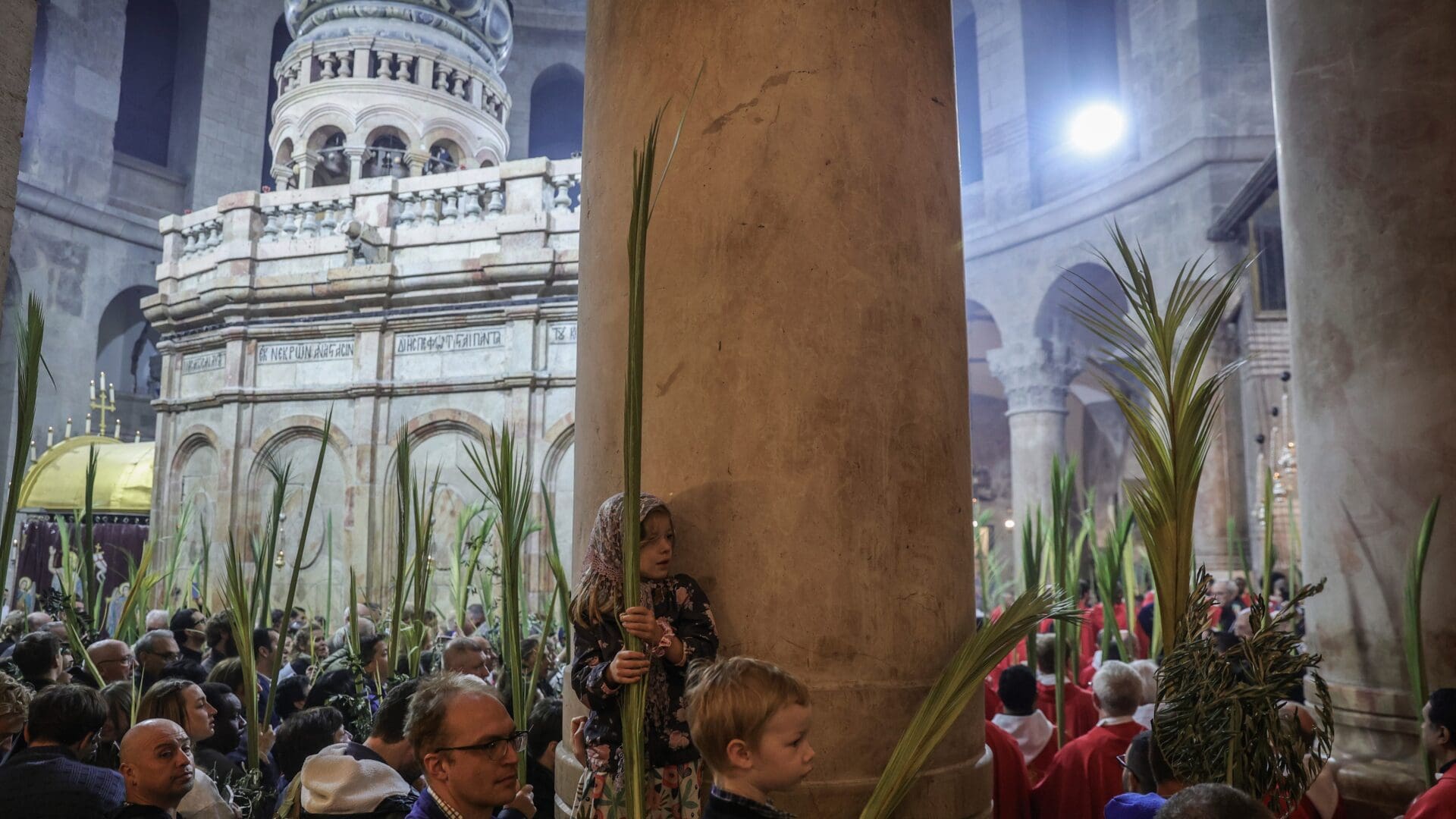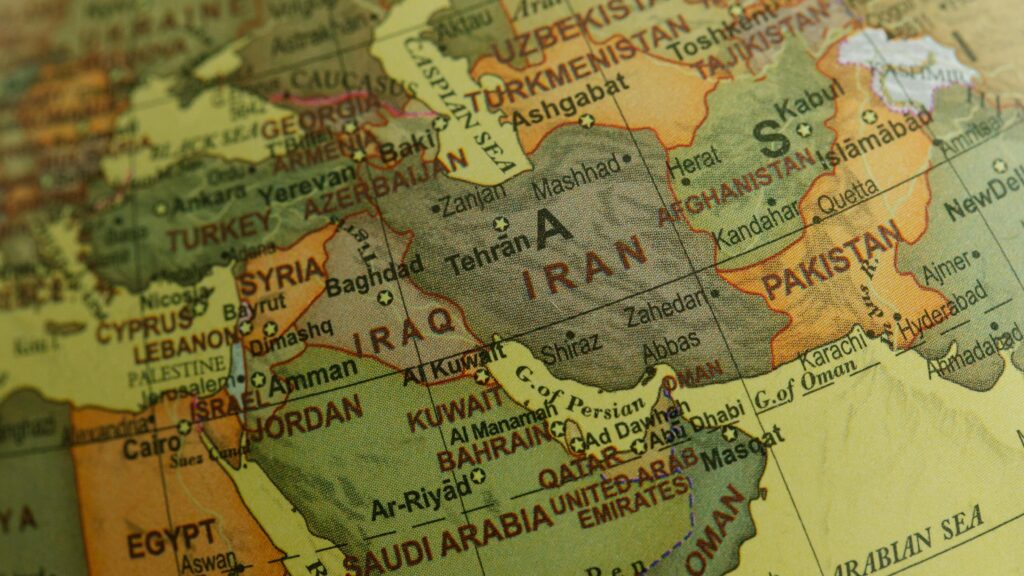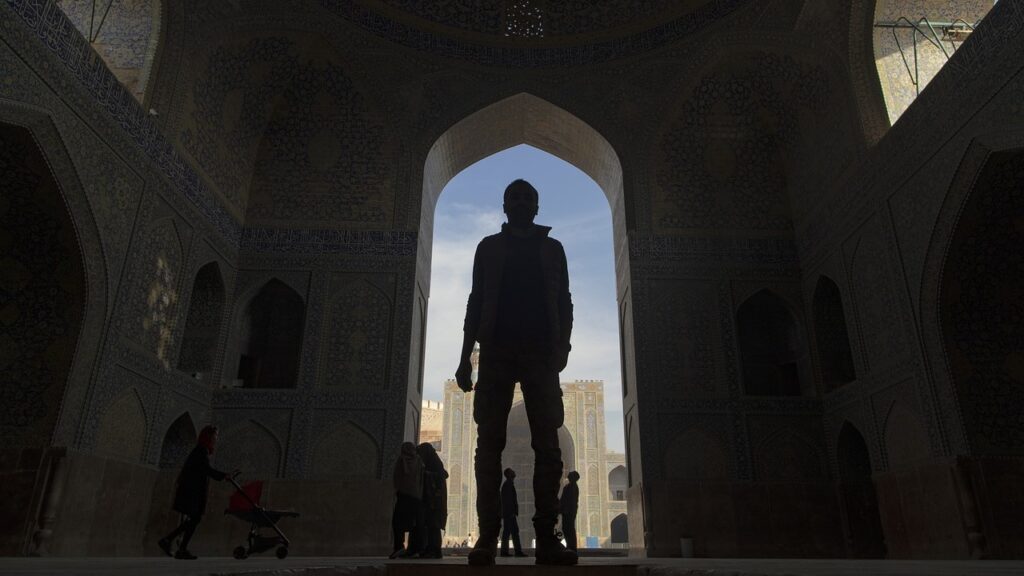This is the story of two very different Christian communities; those in the Kingdom of Jordan and those in the state of Israel. The differences would surprise many Hungarians, and indeed most Western readers. In Jordan, they are welcome and enjoy the particular patronage and protection of the Royal Family. In Israel they face harassment and on occasion actual violence. Their priests are spat upon, their services occasionally disrupted and their churches, statues, and monuments damaged or defaced with graffiti.
But in both countries, the demographic trends are the same. The number of Christians is rapidly declining, which is the case throughout the Middle East. Young people in particular are eager to emigrate, seeing a better and more secure life in the West—in the EU, the United States, in Australia, or even in Hungary, which welcomes persecuted Christians from around the world.
Sadly, the wish to flee the Holy Land is increasingly being shared by their parents who see themselves and their families as trapped in a region beset by war, instability, and economic decline, and who
see little future in their countries for themselves or their children.
These findings are well documented in the academic literature, the media, and in the work of the NGOs, as well as in statistics provided by the governments themselves.
This pessimism about the future of the Christian communities in the region was confirmed in the many interviews and discussions conducted in Jordan, Israel, and the Palestinian Authority by a team of researchers sponsored by the Danube Institute, the Lajos Batthyány Foundation, and Hungary Helps who have spent a month in the region speaking to Church leaders, government officials, and Christian believers from all walks of life. The team, led by Prof. Jeffrey Kaplan and consisting of Gabriella Kocsis, Zille Potsay, and Logan West has recently returned to Budapest to publicize their findings.
The research began in Jordan. It was centered in Amman and traveled to two other Christian centers as well. As in our previous research in Iraqi Kurdistan, the actual number of Christians in Jordan is hard to gauge. According to the Jordanian government, Christians comprise 6 per cent of the population. More commonly, most sources put this number at about 3 per cent, numbering an estimated 250,000 to 300,000. Privately, however, church leaders will tell you that the actual number is somewhat less and constantly diminishing due to emigration and smaller natural increase than their Muslim countrymen.
What makes these numbers particularly alarming is the fact that Jordan is an island of calm and stability in a region beset by war and civil strife. Moreover, the Royal Family has publicly affirmed its support for Jordan’s Christians. As reported by the Jordan Times in 2016, King Abdullah stated that:
‘Muslims and Christians in Jordan are one family working together for the country’s national interest towards prosperity and progress.’
Jordanian Christians are notably successful. Many of the leaders of the various churches reported that Christians control up to 30 per cent of the nation’s economy. They feel safe in Jordan and all to whom we spoke declared a deep love and undying loyalty to the Royal Family.
But despite the success of some Christian families, Christians and Muslims alike face daunting economic realities which are particularly dire for the young. According to the Jordanian Bureau of Statistics, the overall unemployment rate is a little over 20 per cent, with the rate for women at over 30 per cent. But the telling statistic is that the unemployment rate for youth aged 20–30 is now at 53.5 per cent. In our interview with Dr. Marwan Muasher, an economist and former Ambassador to Israel and the United States, the youth unemployment rate is inflated as many work in the informal economy. This might be true but it only emphasizes the problem. Young people do not complete their education and university training to become cab drivers, day laborers, or waitresses. Thus the need to emigrate and the steady decline in Jordan’s Christian population.
Christians in Israel and the Palestinian Authority have similar economic problems, but to these are added a level of threats, harassment, and violence that are unknown in Jordan. Before the October 7 Hamas terrorist attack these incidents had reached the international media, to the great embarrassment of the Israeli government, which counts foreign Christians, especially American evangelicals, among its most ardent supporters. It would stand to reason that, given the horrific nature of the Hamas violence and the Gaza war, these attacks would subside, but in fact the opposite is true. According to the Tel Aviv based Religious Freedom Data Center, which tracks these incidents and reports them to police, this anomaly may be explained by the appearance of graffiti equating Christians with Hamas.
The incidents which include spitting at clergy, vandalism, and verbal and physical abuse have been growing for some time. The turning point, however, according to our interview with Brother Francesco Patton, Custos or Curator of all Christian properties in the Holy Land, came with the enactment in 2018 of a Basic Law designating Israel as the Nation-State of the Jewish people. The passage of this legislation gave a green light to extremists to turn on non-Jews in Israel with the Christian churches and their clergy as the primary targets.
The attacks are widely disbursed but have a particular focus in the Old City, the Mount of Olives, and in the Palestinian Authority city of Bethlehem and its environs, including Beit Sahur and Beit Jala. There have been incidents in Haifa as well. Churches, monasteries, processions, and even an order of Polish nuns have been targeted, as were a group of Palestinian nuns in Jerusalem.
Virtually all Israeli Jews with whom we have spoken dismiss these actions as rare and trivial, although this attitude is slowly changing following a Channel 13 video report by journalist Yossi Eli, who donned the habit of a Franciscan monk and in the first five minutes of his appearance on the street was spat upon no less than five times.
Many Israelis believe that the perpetrators are mentally ill, but this is far from true. They are extremists for sure, but come from Ultra-Orthodox yeshivas and settler groups, although the most disturbing cases involve young people and even small children who, in addition to spitting, shout slogans that were obviously learned from their parents telling Christians to get out of the Jewish state.
The Armenian Church has been a particular target, although according to our interviews with Armenian church leaders, this is less because they are Armenian than because their church and seminary are located in the Armenian Quarter of the Old City, which is in close proximity to the Western Wall and thus a place frequently traversed by religious Jews. Armenian priests have been spat upon and attacked, their processions have been disrupted and the church has been vandalized. There was even in 2023 a physical attack on mostly Armenian diners at the Taboon Wine Bar in the Old City. Most ominously, the Armenian monastery was defaced with graffiti reading: ‘Revenge and death to Arabs, Armenians and Christians.’ Christian cemeteries too have been vandalized.
Police have been slow to respond to these incidents according to church leaders interviewed for this research. However, Yisca Harany, founder of the Religious Freedom Data Center, disagreed, saying that recently there has been much greater cooperation with authorities.
President Herzog has strongly condemned such acts, and under pressure from American evangelicals Prime Minister Benjamin Netanyahu reaffirmed his support for Christians in Israel. However, the Prime Minister’s expressions of goodwill are greatly undermined by the presence in his cabinet of such racist extremists as National Security Minister Itamar Ben Gvir, who openly supports such acts of violence, as does Jerusalem Deputy Mayor Arieh King, who attends violent protests against evangelicals at the Western Wall Plaza and is on hand to urge violence at the messianic Jewish church King of Kings.
Less than 2 per cent of the Israeli population are Christian, comprising perhaps 185,000 souls with another 47,000 Christians residing in the Palestinian Authority. Around 1,000 Christians also live in Gaza, but their situation under Hamas even before 7 October was dire and as a result of the Gaza war, catastrophic. Once again, however, churchmen will privately state that the actual number of Christians in Israel and Palestine is dropping as fast as visas to Western countries can be obtained while the Christians in Gaza, like many other Gazans, face a future in exile.
Unlike in the Islamic states in the region, no seats in the Knesset or parliament are reserved for Christians, depriving them of even the symbolic voice afforded to Christians elsewhere in the Middle East.
Both Jordan and Israel, each for different reasons, are part of a larger trend of the deChristianization of the Middle East.
Many churchmen fear that in a generation or two Christianity, like Judaism before it, will become a diaspora religion; exiled from its birthplace. In this dark vision, the great Christian churches, shrines, and monuments will become the objects of pilgrimage, mere museums, rather than vibrant, living places of worship.
Preventing this from coming to pass is the duty of all of the nations of the world, particularly those of the Christian West, but in particular, depends on the creation of a more peaceful environment and as a result the revival of national and regional economies. Nothing is impossible, but as the exodus of Christians from the region demonstrates, there is little faith that such a revival is on the horizon.








